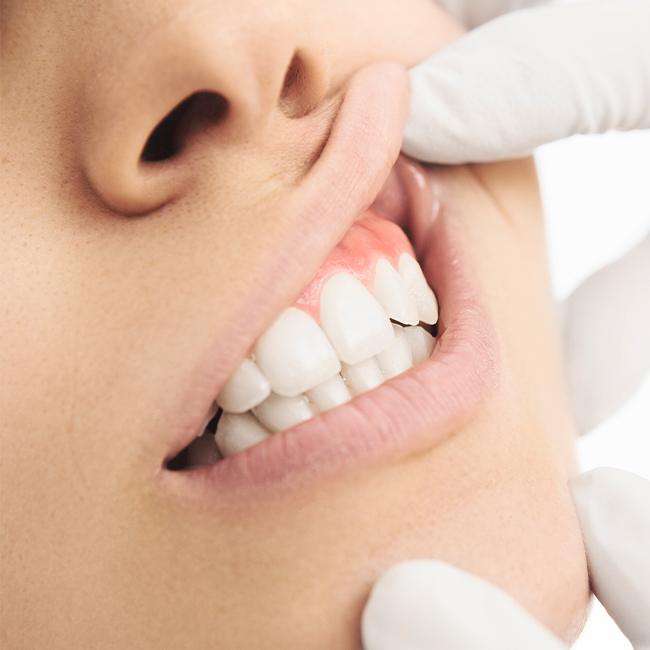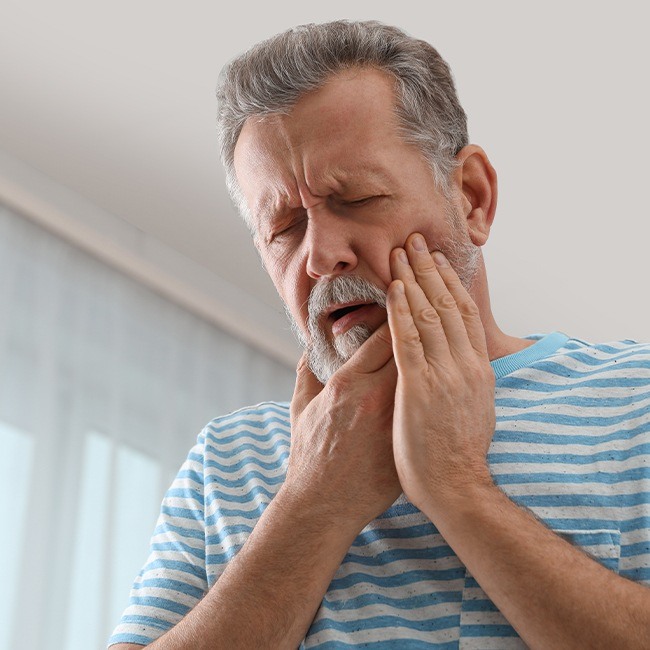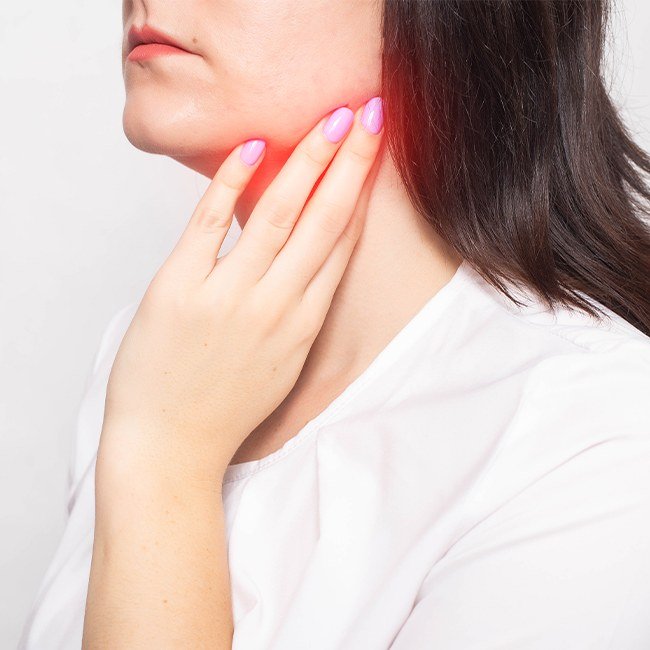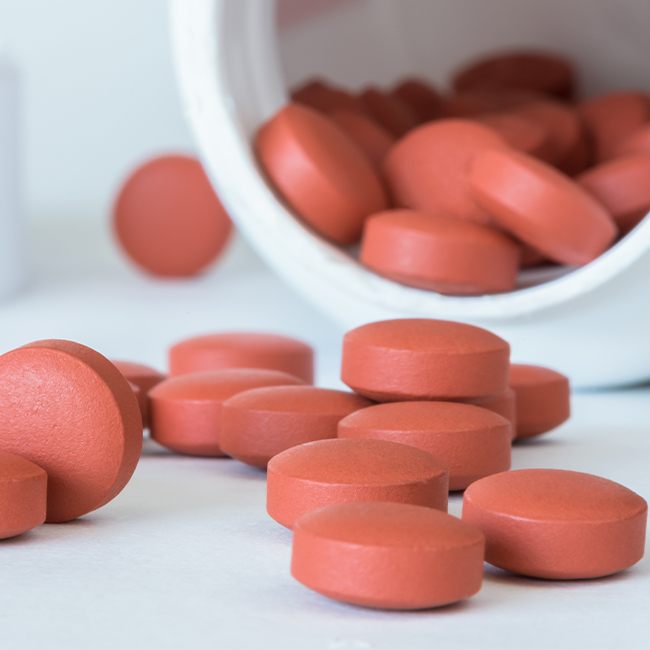Oral & Maxillofacial Pathology - Houston, TX
Acting Quickly to Keep You Healthy
The mouth can develop problems other than the standard ones such as cavities, gum disease, and tooth loss. These often consist of tumors and cysts on the bones and skin, but the team at Piney Point Oral & Maxillofacial Surgery is more than ready to help with oral and maxillofacial pathology in Houston, TX. If a patient has a growth in their mouth, we can help diagnose it, and if needed, remove it quickly and painlessly.
Bone Cyst & Tumor Treatment

One of the most common reasons that the wisdom teeth need to be removed is because they are causing cysts to develop on the bone around them. We can easily spot these with X-rays, and in addition to removing the wisdom teeth themselves, we can take out any cysts at the same time. Tumors can form on the jawbone, too, but we can remove these as well as soon as we find them to prevent further issues down the road.
Skin Cyst & Tumor Treatment

Cysts and tumors on oral skin can be painful and unattractive, but fortunately, our patients don’t have to just live with them. If you have a growth on or near your lips, cheeks, gums, or throat, we can remove it with a short surgical procedure that takes just one appointment. We’ll also make sure to diagnose what the growth is beforehand so that if any other treatment is needed, you can start it right away.
Salivary Gland Cyst & Tumor Treatment

Fully functioning salivary glands are absolutely essential for your oral and overall health. Certain conditions can cause them to develop cysts and tumors, leading to pain and a marked drop in saliva production. This can cause dry mouth and drastically increase someone’s risk for cavities and gum disease. If we suspect that your salivary glands are not working as they should, we’ll scan them, and remove any growths as necessary so they can get back to normal.
Treating Oral & Maxillofacial Infections

Every single part of the body can develop an infection, and oral infections are particularly dangerous because the bacteria can easily enter the bloodstream and travel to other parts of the body to cause damage. We have the technology and expertise to identify infections early, and if needed, we can surgically remove dead tissue to prevent the problem from spreading, restoring a patient’s oral health while safeguarding their overall health.
Oral Surgery FAQs

Our team wants you to be able to commit to your oral surgery with confidence, and we understand that knowledge plays a big role in enabling you to do that. Therefore, we have compiled a list of answers to some frequently asked questions about oral surgery. If you don’t see the specific information you were hoping for, give us a call. We will be happy to speak with you!
Can My Procedure Be Performed by My Dentist, or Should I Visit an Oral Surgeon?
There is a degree of crossover between what many dentists are able to do and the services typically performed by an oral surgeon in Houston. For example, some general dentists are able to extract impacted wisdom teeth, insert dental implants into the jawbone, or carry out other advanced procedures. Some services, however, are the exclusive realm of oral surgeons.
If you find a general dentist who offers the surgery you are interested in, we strongly recommend that you consider the credentials of any practice you are thinking about visiting. Oral surgeons have more training in the complexities of various procedures, and we have invested in advanced technology to make the patient experience as easy as possible.
How Long Is the Recovery from Oral Surgery?
Recovery time can vary depending on your overall health and the type of surgery in question. Most patients are able to return to work within a few days of their procedures, while others stay at home and rest for a week or longer. We will give you detailed post-op instructions to make your recovery as comfortable and efficient as possible. If you run into any concerns or questions while you are on the mend, we encourage you to get in touch with us.
What Can I Eat after Oral Surgery?
It is smart to eat soft foods, perhaps even sticking to liquids, for the initial part of your recovery period. Once the soft tissue in your mouth starts to heal, you can progress to easy-to-chew solids. Depending on the type of surgery you underwent, you may be able to resume a normal diet within a few weeks. However, if you received dental implants and do not have any natural teeth left, it might be several months before you can resume eating all of your favorite meals and snacks.
One of My Stitches Came Out. What Should I Do?
In most cases, stitches are used simply to control initial bleeding after oral surgery. If one comes out, even if it is as soon as a few hours after the procedure, it is usually nothing to worry about. However, if you are experiencing prolonged or heavy bleeding after a stitch comes out, there may be a problem that requires prompt treatment.
Do I Need a Referral to Visit an Oral Surgeon?
Oral surgeons have differing policies on whether a referral is required to visit them. Also, keep in mind that some insurance policies will not pay for care from an oral surgeon unless you first get a referral from your primary dentist or primary physician.
We are happy to accept referrals from our fellow medical and dental professionals. However, a referral is not required for patients to visit us. You can use our online form to request an appointment.
Wisdom Teeth Extractions Oral & Maxillofacial Pathology Oral Cancer Orthognathic Surgery Dental Implants Pre-Prosthetic Surgery Facial Trauma Treatment Apicoectomy Surgery Cleft Lip & Palate Surgery TMJ Treatment Corrective Orthodontic Surgery Sleep Apnea Treatment Anesthesia & Sedation Dentistry Cosmetic Facial Treatments Dental Emergencies View Our Services

